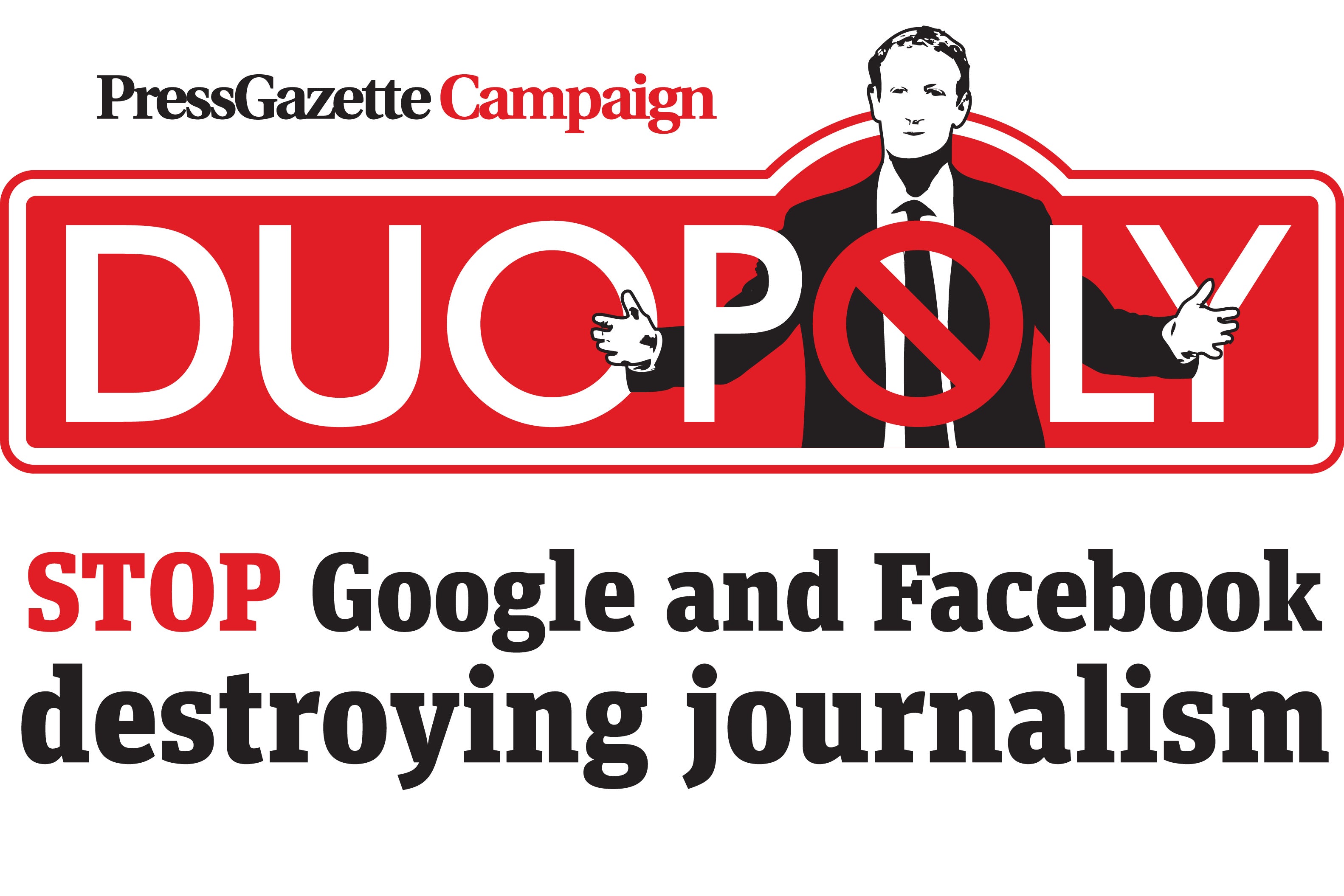
A study for the US-based News Media Alliance has suggested that journalism generates at least $4.7bn year in search revenue for Google.
The publishers’ group has used the study to make the case for US Congress to pass a law enabling news organisations to negotiate collectively for a greater share of the money Google makes from their work.
There are similar issues in the UK where Press Gazette’s Duopoly campaign has highlighted the fact that Google and Facebook take the lion’s share of digital advertising, hindering the sustainability of digital journalism online.
The News Media Alliance study takes a 2008 reported figure of Google News being worth $100m a year as its starting point. And it extrapolates that, given the growth of news and advertising on Google, in 2018 that figure would be $4.7bn of the tech giant’s $138.6bn total revenue.
As the study does not include the revenue share Google takes from advertising carried on publishers’ own sites (as the world’s main provider of advertising technology) the $4.7bn estimate seems conservative. It also does not include money made by Google from collecting data about readers of news.
The study scraped thousands of pages of search results for the most popular search terms in the US and found that 16 per cent of results and the same proportion of clicks for the most popular queries in the US are for news.
When it comes to trending queries: 39 per cent of results and 40 per cent of clicks are to news websites.
News Media Alliance president and chief executive David Chavern said: “News publishers need to continue to invest in quality journalism, and they can’t do that if the platforms take what they want without paying for it. Information wants to be free, but reporters need to get paid.
“The findings clearly point to Google responding to an increase in consumers searching for news, creating and tailoring products that keep users within its ecosystem. This means more money goes back to Google and not the publishers producing the content,”
“We have called for legislation that would provide a limited safe harbor for news publishers to be able to collectively negotiate for better terms with platforms such as Google and Facebook.
“This is the only solution to correcting the current marketplace imbalance, which allows the platforms to dominate the web and related advertising infrastructure, as well as control who sees publishers’ content and when.”
In the US, as in the UK, publishers are banned from collectively negotiating with digital giants like Facebook and Google by anti-cartel legislation.
A bill that would allow publishers to negotiate collectively in the US – the Journalism Competition and Preservation Act – is currently making its way through the US Congress.
According to a report by media investment company Group M, the total UK advertising market will be worth around £21.8bn bn this year with some £10bn of that figure going to Google and Facebook.
That’s five times more than the share of advertising in the UK for the entire journalism industry (in print and online).
The newspaper and magazine industry share of the advertising market in the UK is estimated by Group M to be as follows in 2019:
- National newsbrands: £807m (down 2.2 per cent)
- Regional newsbrands £623m (down 8.9 per cent)
- Consumer magazine brands £341m (down 7.8 per cent)
- B2B magazine brands £235m (down 2.2 per cent)
Email pged@pressgazette.co.uk to point out mistakes, provide story tips or send in a letter for publication on our "Letters Page" blog
